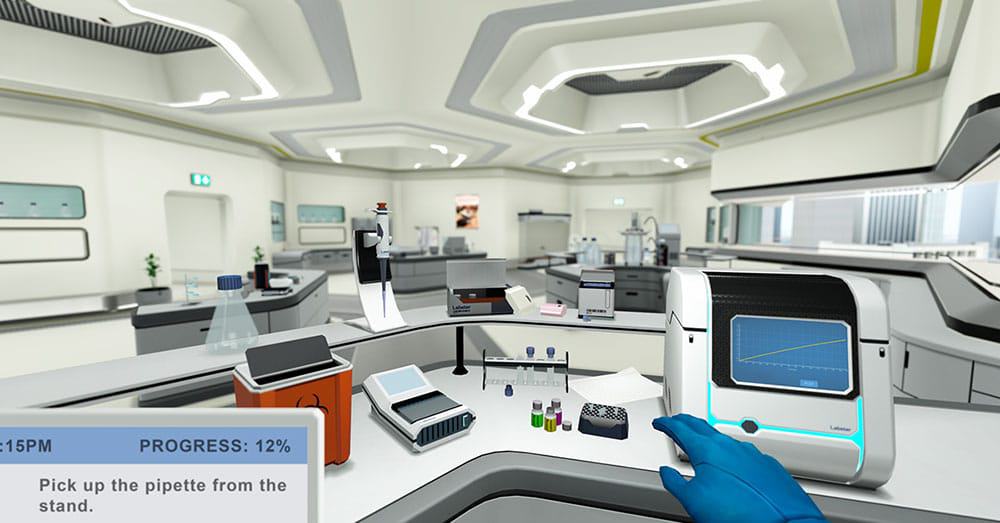Labster
Labster is a healthcare simulation company that develops advanced medical lab courses founded on mathematical algorithms that support open-ended investigations. The company’s simulated lab courses combine the open-ended investigations with gamification elements such as an immersive 3D universe, story-telling and a scoring system.
Leveraging technology, Labster creates scalable science training software with increased learning outcomes and motivation. The company’s vision is to truly empower the next generation of educators, medical professionals, and scientists to change the world. Labster has come to offer a simulated virtual laboratory with a focus on revolutionizing the way science is taught to learners across the world.
Covering a wide range of science topics, Labster virtual lab simulations offer over 140 simulation courses to meet the specific needs of educators across healthcare simulation. This virtual laboratory network provides a supportive, fully interactive curriculum-based e-tool. WIth this solution, learners can experience life-like challenges in an online environment that simulates reality while prioritizing patient safety.
Sponsored Content:
A scoring system stimulates learners’ natural curiosity while highlighting the connection between science and real-world issues. Each simulation has a different number of quiz questions, usually between 15 and 40. Therefore, the maximum scores can range from 150 to 400 depending on the simulation.
By participating in a Labster sim lab course, learners are presented with the opportunity to learn and experience true-to-life laboratory experience at a fraction of the cost of a real lab. During each Labster virtual lab simulation, learners work through real-life case stories, interact with lab equipment, perform experiments, and learn with theory and quiz questions. Thanks to engaging 3D animations, learners can also explore life science at the molecular level and look inside the machines they are operating.
Virtual labs are not limited by the time and cost restraints of an ordinary lab, meaning students can experiment with cutting-edge lab equipment in a safe learning environment, and carry out experiments not usually possible in a face-to-face course. Using this technology, educators can supplement their teaching with virtual labs to prepare students for the wet lab. This can help them understand difficult concepts while engaging them with the science course.
To date, Labster simulation courses are utilized by global leading institutions such as California State University, Harvard, Gwinnett Technical College, MIT, Exeter University, University of New Haven, Stanford, University of New England, Trinity College, University of Hong Kong and Berkeley among others.
Sponsored Content:
To continue developing innovative simulation courses, Labster has received $10 million in grant funding for cutting edge research and development projects. The company has offices in Denmark, Switzerland, the United States of America and Indonesia and believes that a collaborative, motivational working environment is the key to educational innovation.
Labster Virtual Reality in Simulation Courses
One healthcare simulation curriculum offered by Labster focuses on anatomy and physiology. During these courses, participants can learn how cells make up organs and systems, and how well-regulated communication between all of them makes the existence of organisms possible. Learners can study human physiology and discover how the different organs in the human body carry out duties and keep people alive.
Within the company’s biochemistry courses, learners can study biological molecules and discover how they create the processes that occur within living cells. They will also gain insight into how organisms obtain the energy they need for living, and how enzymes help every one of a body’s functions.
In terms of biotechnology courses, learners can become knowledgeable on how to develop or make products from living systems and organisms in our biotechnology lab simulations. They will study how living organisms can be modified and used in fields such as pharmaceuticals and agriculture. Additionally, they will learn about what role genetically modified organisms play in the research of diseases, such as cancer.
During Labster’s cellular and molecular biology courses, participants will learn how cells make up organs and systems, and how a well regulated communication between all of them makes the existence of organisms possible in physiology simulations. They will study human physiology and discover how the different organs in a body carry out their duty and keep each person alive.
Extremely important across any healthcare simulation curriculum, Labster’s safety courses help learners master laboratory techniques and safety protocols in a safe, 3D virtual lab training environment. Learn various lab techniques, train on advanced machinery and equipment and learn to employ best safety practices in lab safety simulations.
Other course subjects include general biology, microbiology, general chemistry, genetics, ecology, engineering, evolution and diversity, food science and nutrition and physics. There are also courses specific to high school learners that align with Next Generation Science Standards (NGSS), Advanced Placement (AP), and International Baccalaureate (IB) curriculum standards.
Additional Labster Virtual Learning Resources
Courses are not the only resources offered by Labster! The company also produces faculty resources, webinars, research, a blog and white papers. The faculty resources are designed to help educators receive information more about Labster, review and decide on which simulations to use with their learners, connect to their LMS, and upload their selected simulations.
Click Here to Connect to Leading Healthcare Simulation Vendors Like Labster
Offering both live and recorded webinars, Labster discusses topics such as how virtual labs work, how educators can use them and what learners and other educators say about them, and safety training procedures during virtual labs. Educators around the globe are using Labster’s virtual labs to help motivate and engage STEM students through introducing and reinforcing concepts, preparing for wet-labs, post-lab practice to master skills/techniques and as lab replacements for online learners.
Labster’s research then combines the latest knowledge in educational psychology, cognitive science and machine learning in order to understand how to best design and develop technology for learning and training. The company extends numerous publications, ranging in topics from motivational and cognitive benefits of training in immersive virtual reality to improving biotech education through gamified laboratory simulations.
The monthly blog produced by Labster provides even more ways for both learners and educators to discover new ways of teaching and retaining knowledge. Similarly, Labster white papers present information about the many possibilities of teaching with virtual labs, and provide the latest research and trend updates on Ed Tech. Learn more on the Labster website or read these articles below.
Labster Simulation Education Latest News
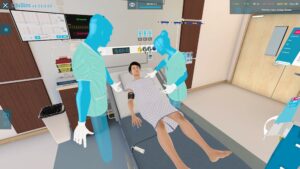
UbiSim’s Intuitive Editor Creates Meaningful Virtual Reality Simulations for Nursing Students
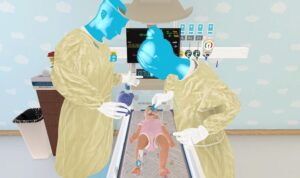
UbiSim Virtual Reality Develops Better Prepared Nurses With Realistic Experiences and Emotional Connections
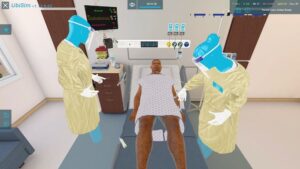
UbiSim Virtual Reality Prepares Nurse Learners for Next Gen NCLEX (NGN) Exam

Virtual Science Simulation Company Labster Acquires UbiSim to Globally Expand Nursing Skills VR Training
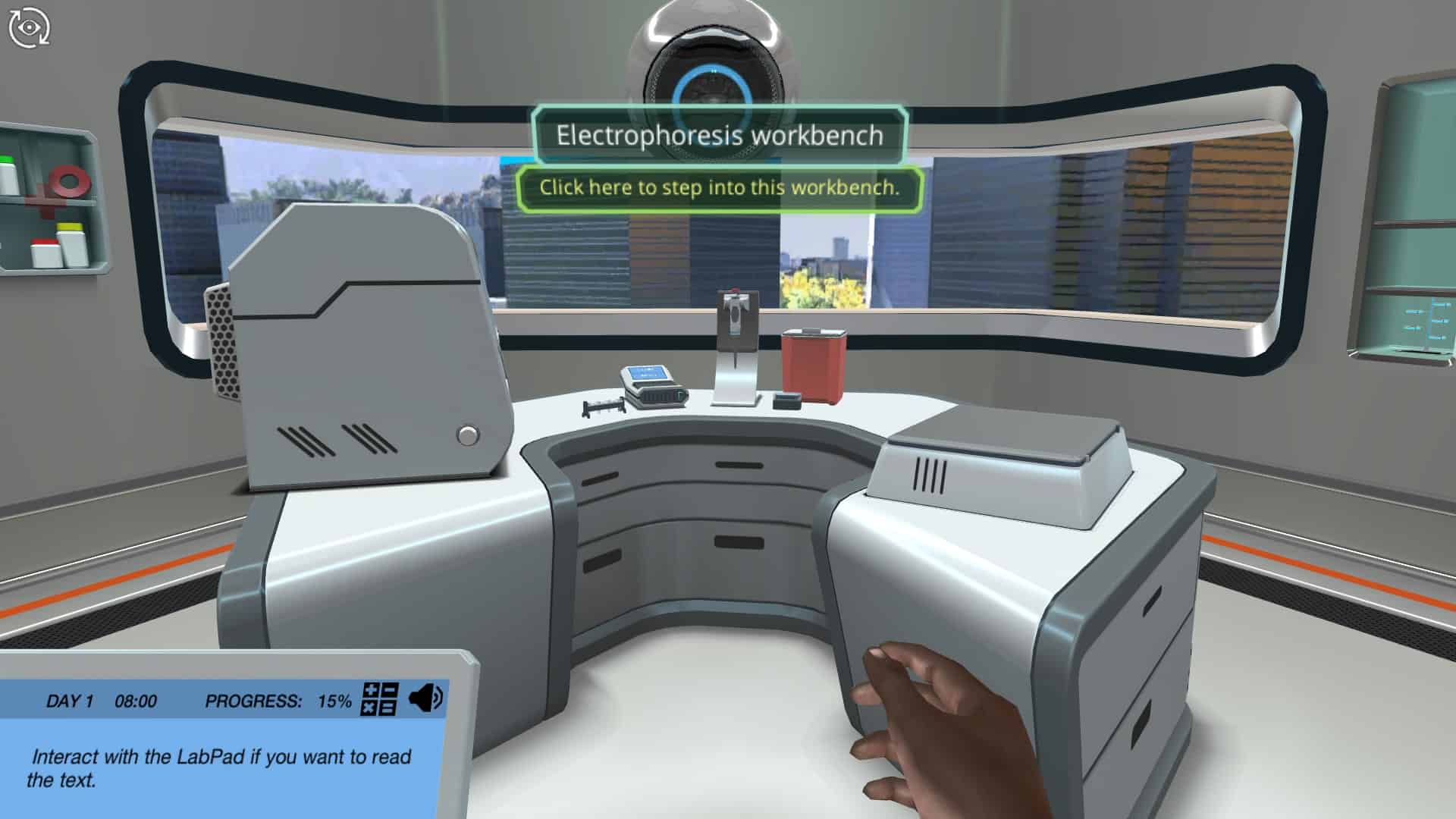
Virtual Medical Lab Simulation Company Labster Receives $60 Million Series C Investment

10 Medical Simulation Keywords You Need to Know About
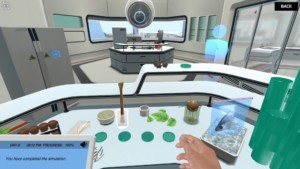
Labster Medical Lab Simulation Technology Now Available on 23 California State University Campuses
Sponsored Content:



